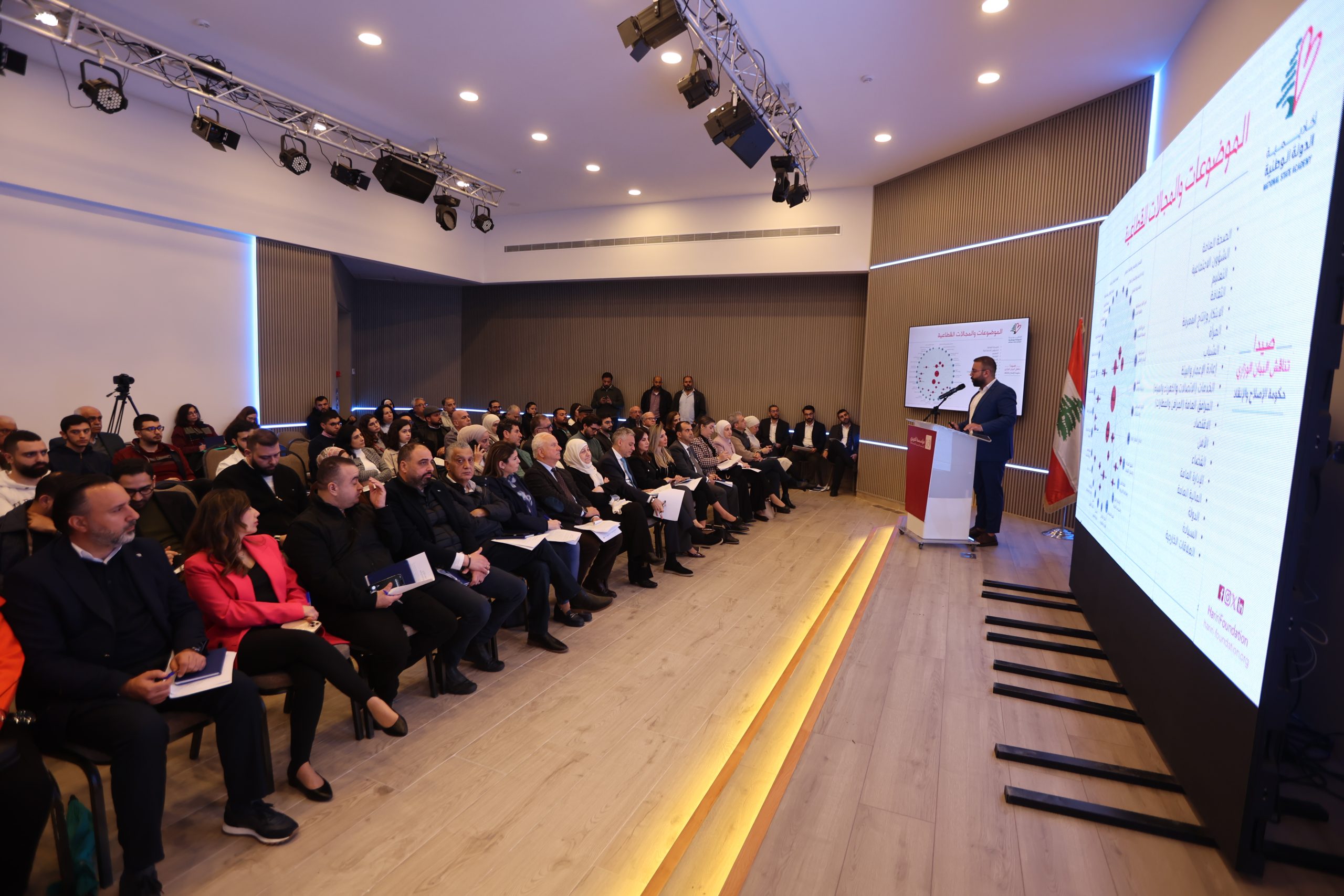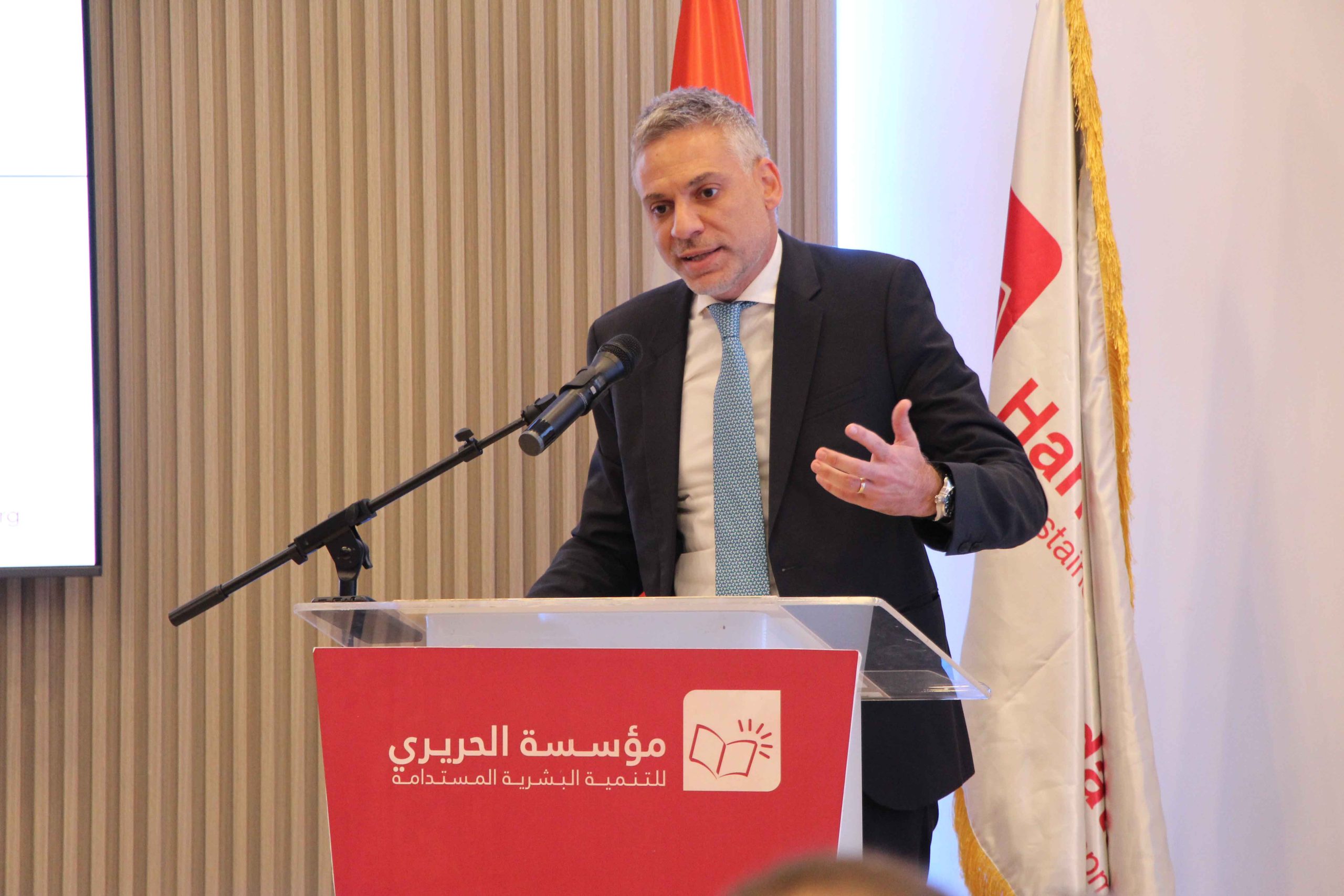Reconstruction, Environment, and Public Services: Saida Discusses the Ministerial Statement
As part of the “Saida Discusses the Ministerial Statement” initiative, the Hariri Foundation for Sustainable Human Development hosted the fourth and fifth dialogue sessions focusing on “Reconstruction, Environment, Services, and Public Facilities” at the foundation’s National State Academy. These sessions aim to facilitate discussions among various community sectors, offering a platform for expressing their views and identifying intersections with the strategic vision outlined in the ministerial statement of the “Reform and Rescue Government”
The dialogue sessions gathered prominent participants, including the President of the Hariri Foundation, Mrs. Bahia Hariri; President of the Order of Engineers, Engineer Fadi Hanna; Nabatieh Governor Dr. Huwaida Turk; Ms. Mirna Rouwas, representing South Governor Mansour Daou; Saida Mayor Dr. Hazem Badi; Executive Director of Hariri Foundation Dr. Rubina Abu Zainab; Judge Kaleen Abdullah; President of the South Lebanon Trade Union Federation, Mr. Abdel-Latif Al-Teryaqi; Ambassador Abdel-Mawla Al-Solh; Professor Burhan Al-Khatib; Dr. Nasser Hammoud, member of the Future Movement’s political bureau; Mr. Mazen Hashisho, Future Movement coordinator for Saida and the South; and Saida municipal council members Mustafa Hijazi, Mohammad Al-Baba, Wafaa Shuaib, and Arab Kalash.

The sessions also saw active participation from representatives of official institutions, environmental organizations, service providers, civil society groups, numerous engineers, and youth representatives who had participated in previous surveys related to the ministerial statement.
The event commenced with the Lebanese national anthem and opening remarks by Mohammed Hariri, Director of Research and Development at the foundation. This was followed by detailed presentations delivered by Ahmed Kassab, Jihad Akkoum, Karim Salameh, and Maya Bissat. Their presentations covered topics such as the alignment of the ministerial statement with the National Strategy for the Prevention of Violent Extremism, key sector terminologies and intersections with ministerial objectives, detailed sector assessments, and youth feedback from surveys conducted earlier.
Following the presentations, an extensive discussion facilitated by Mr. Mohammad Ismail included 22 interventions from sector representatives, addressing challenges, opportunities, and statistical insights relevant to reconstruction, environmental sustainability, and public services as highlighted by the ministerial statement.
In her speech, Mrs. Bahia Hariri expressed appreciation for the participants’ commitment to engaging in constructive dialogue. She recounted the foundation’s inception in 1979 by late Prime Minister Rafik Hariri amid challenging circumstances. Mrs. Hariri highlighted that the foundation’s vision prioritizes investing in human development through educational, productive, social, professional, and developmental justice. She affirmed the foundation’s commitment to fostering informed dialogue between government and communities to effectively realize the national strategic vision of the ministerial statement.

Engineer Fadi Hanna commended the detailed data-driven approach of the Hariri Foundation team. He mentioned that the Engineers Syndicate identified 15 points from the ministerial statement suitable for collaboration, such as reconstruction, citizen rights, institutional reform, judicial empowerment, economic restructuring, infrastructure improvement, agricultural land preservation, telecommunications, energy sector development, technological innovation, and the empowerment of youth and women.
Hanna also highlighted the Engineers Syndicate’s dedication to reconstruction efforts, mentioning the removal of fees for reconstruction-related engineering registration. He emphasized the syndicate’s willingness to collaborate fully with governmental initiatives to promote effective reconstruction policies.
The “Saida Discusses the Ministerial Statement” sessions are held weekly, each addressing different sectors, including public health, education, culture, youth, reconstruction, economic development, security, and administration, facilitating comprehensive community engagement.